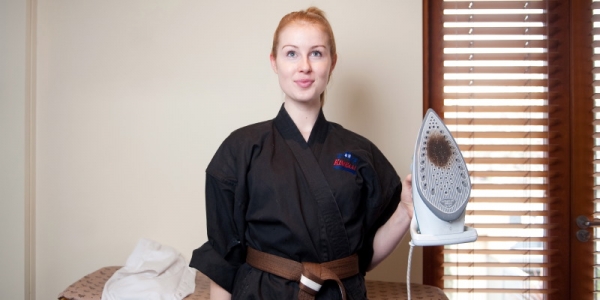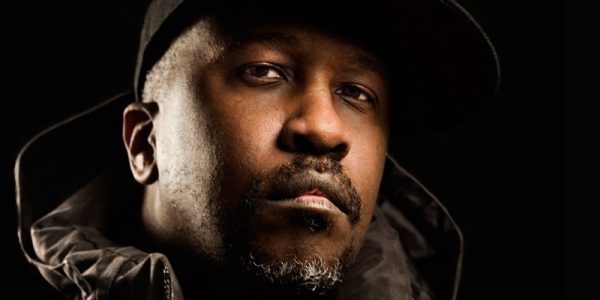The Kitchen Sink is a story of a family living together in the seaside town of Withernsea, in Yorkshire. “They’re all kind of struggling to accept change and move forward,” Brew says, “and each of them, at some point in the play, has a chance to explode out of their comfort zone and do something crazy. My character, Sophie, is a girl who’s going for her black belt in Jiu-Jitsu, but for various reasons, ends up decking her Jiu-Jitsu examiner, so ends up having to reassess how to go about getting her black belt, and overcome some of her own fears. Her dad is struggling with how to maintain the family business, which he has been running for 20 years and which is losing money. Her brother Billy is off to art school but he’s quite frightened of going.” The play is about accepting change and breaking out of one’s comfort zone. “These people are all forced to step up,” Brew says, “and that’s where a lot of the drama comes from.”
Stories about family also make for quite potent dramatic fare. “I think it’s quite easy to see a bit of yourself in these characters,” Brew says, “and also emphasise with the ways that they react to each-other. My character Sophie can be quite hard and quite rude at times, but she’s struggling so much with her own identity and sense of self, it comes out in the way that she reacts to her family. You find out a bit later in the play that she’s gone through quite a traumatic experience, and is trying to move forward from that and be a strong woman while she’s crumbling a little bit.” The Kitchen Sink is quite a funny play, but what makes it funny, Brew says, is the sadness at the other end of the scale. “There’s something really endearing about each of the characters,” she says. “They’re a family, and every family is different, but also sort of the same.”
Given the play’s English setting, director Terence O’Connell has opted to have the cast perform in Yorkshire accents – getting this right, Brew tells me, has been one of the biggest challenges in preparing for the play. “A character’s accent, and the way that they speak and enunciate can really tell you a lot about them and who they are,” she says. “The way that Yorkshire people speak is quite distinctive – it’s certainly a lot different from the way Australians speak, and it’s even quite a bit different from the way people speak in London. It’s very specific – there’s no emotion or pause in what they’re saying, all of it comes through the intonation and the accent. It really does inform what we’re doing as actors on stage. The accent can be really abrupt.”
Perfecting the Yorkshire accent has given the cast the rare opportunity to work with a voice coach – an amazing and fun experience, Brew tells me. “There are so many different dialects in England, and the accent can change within three kilometres of where Withernsea is, so that makes it extra challenging,” she says. “The most important thing for us is just to be consistent with each-other. It’s all well and good to say that, for generational reasons, the young people would speak differently from how their parents do, but that’s not going to read well on stage, so we made a clear choice to do it how we’ve done it, because otherwise, it wouldn’t quite work.”
Kristina Brew has long aspired to work with the Red Stitch Actors Theatre, so for her, The Kitchen Sink is something of a dream come true. “I graduated from the VCA in 2008, and I auditioned for the Red Stitch’s graduate program, but the position went to a friend of mine instead. I’ve always gone along to their shows, and have maintained a lovely relationship with some of the ensemble members there, because I really admire the work they’re doing. I’d gone to see a Red Stitch show in Geelong, which was a remount of a show they did here last year called Stop Rewind, and was talking to them then, and the opportunity to audition for this show came up, so I auditioned and now here we are. I’ve really wanted to work with them for a long time – I’ve always been a fan of their determination to put new work on, and their willingness to seek out a broad network of different people to cast.”
BY ALASDAIR DUNCAN

